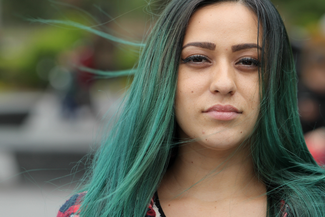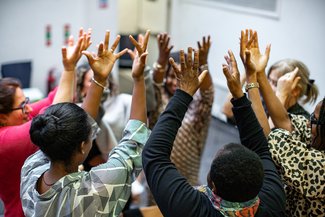
Young Women's Justice Project
Engaging with young women, front-line staff and other experts to build an evidence base about the needs of girls and young women in contact with the criminal justice system.

26 Jul 2022
A Justice Committee Report on Women in Prison has found that despite the Government’s recognition of the distinct challenges faced by women in the criminal justice system in its 2018 Female Offender Strategy (which set out its aims to see fewer women entering the criminal justice system, introduce a shift from custody to the community and improve conditions for women in custody), little progress has been made.
The report raises concerns that despite the Ministry of Justice’s predictions of an increase in the female prison population in the next three years, not enough action has been taken to reduce the number of women in prisons and divert them away from the justice system to trauma-responsive sustainably funded community solutions.
It also highlights the overlooked mental health needs of women entering the criminal justice system, many of whom have often been victims of domestic abuse and have complex histories of trauma and mental health issues.
Commenting on the findings, Agenda’s Chief Executive, Indy Cross said:
“I am deeply disappointed, reading this new report. The Female Offender Strategy set out to reduce the number of women locked up in prisons, which ruins so many lives and futures. It seems the plan to divert women away from the justice system and into much more effective community solutions has not been kept to.
“Prison is not a place for women. The shockingly high self-harm rates (made worse in covid) are proof of that. I find myself terrified, and ashamed, at the prospect of telling women, particularly young women, those that have been in care, and overrepresented Black, Asian and minoritised women – who all have specific experiences of trauma – that their voices have not been heard.
“When will we and our decision makers wake up to the fact that doing more of the same doesn’t work? Banging up women is not the answer. The solution lies with trauma-informed, culturally and age–specific responses in the community, where women stand a fighting chance of getting the support to get their lives back on track.”
Agenda’s previous work has also shown that young women in particular face distinct challenges in the justice system, yet are systematically overlooked in policy and practice responses. The forthcoming HMPPS Young Women’s strategy, as announced in the Ministry of Justice Prisons White Paper (2021), must address this gap through a comprehensive and cross-government response to their needs.
Black, Asian, migrant and minoritised women are further disadvantaged at all stages of the justice system. To address this inequality the Ministry of Justice and Home Office must develop a cross-governmental strategy, and implement the specific recommendations outlined in our Double Disadvantage 10-point action plan, developed in partnership with Hibiscus Initiatives, Muslim Women In Prison, Zahid Mubarek Trust, Criminal Justice Alliance and Women In Prison, as well as women with lived experience of the criminal justice system.
For press enquiries, please contact our Media Consultant:
Philippa Budgen at philippa@philippabudgen.com.

Engaging with young women, front-line staff and other experts to build an evidence base about the needs of girls and young women in contact with the criminal justice system.

Ending inequality for Black, Asian, minoritised, and migratised women in the criminal justice system.